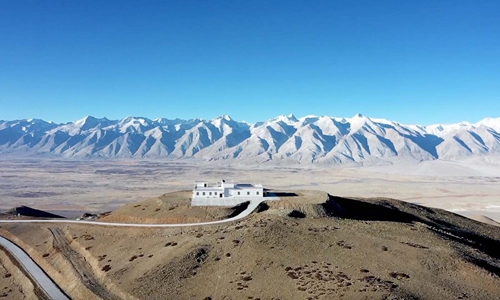
photo: web
Ali CMB Polarization Telescope (AliCPT) project will begin trial operations in southwest China's Tibet Autonomous Region in mid-2021 aiming to probe gravitational waves according to the facility's chief scientist.
"In April and May of this year, the AliCPT will complete the test for all equipment except the receiver in the station. It is expected that the installation of the receiver with 1,700 detectors will be completed in the middle of this year with trial operations to follow," said Zhang Xinmin, a senior researcher at the Institute of High Energy Physics (IHEP) under the Chinese Academy of Sciences and also chief scientist of AliCPT project.
The main scientific goal of AliCPT project is to probe the primordial gravitational waves (PGWs) originated from the very early universe.
It includes two stages. The first stage, referred to as AliCPT-1, includes building a telescope in the Ali region of Tibet at an altitude of 5,250 meters, the world's highest ground-based CMB observatory and opening a new window for probing PGWs in the northern hemisphere, according to the Chinese Academy of Sciences.
The project was proposed in 2014 and officially launched in 2016. The construction of the main body of its observatory was completed in 2018.
"At present, primordial gravitational waves represent the frontier of high energy physics and astronomy, and an important window to harvest major achievements in the field of basic scientific research," Zhang said.
Zhang stated that the Ministry of Science and Technology and the Chinese Academy of Sciences will continue support global cooperation for the project, gather scientific and technological talents from all over the world, and build AliCPT project into an international research center in the frontier field of cosmology.

